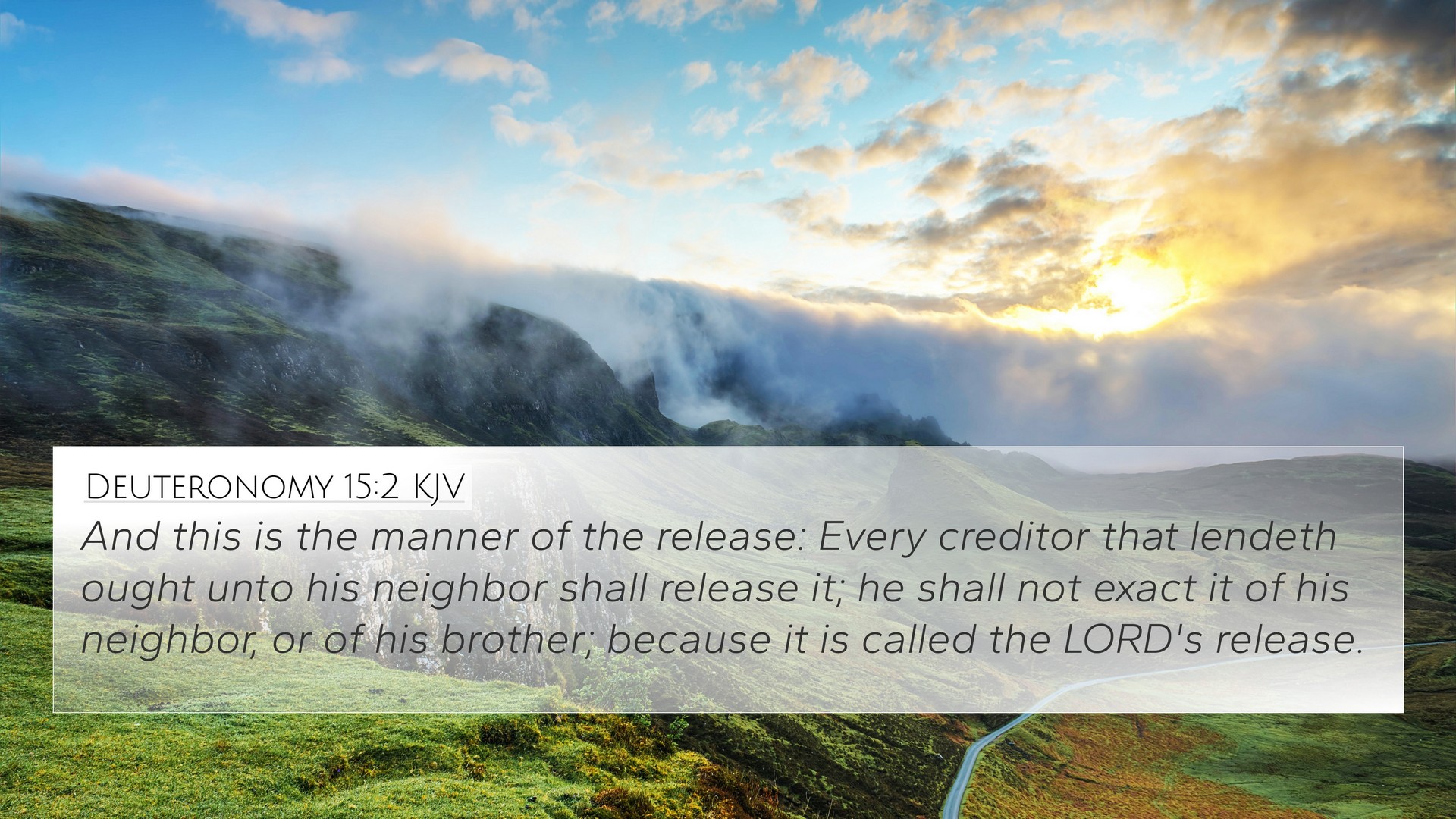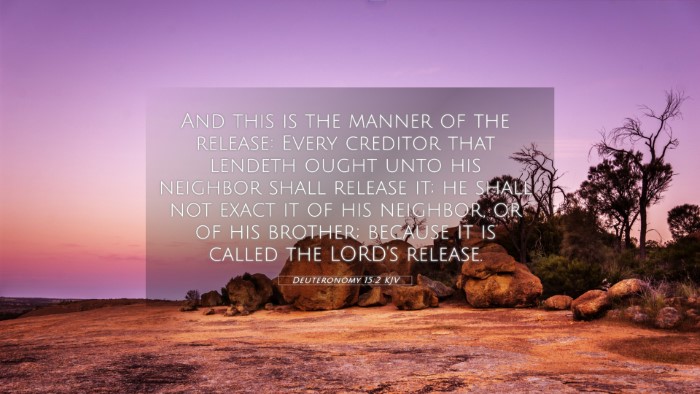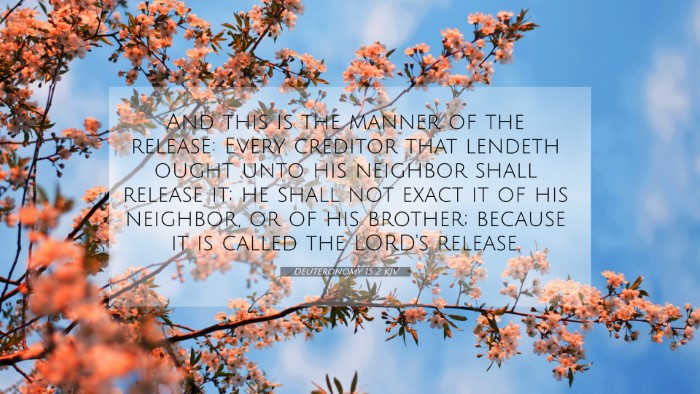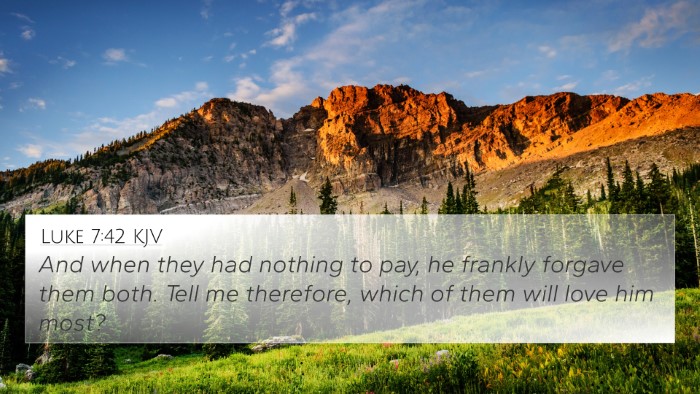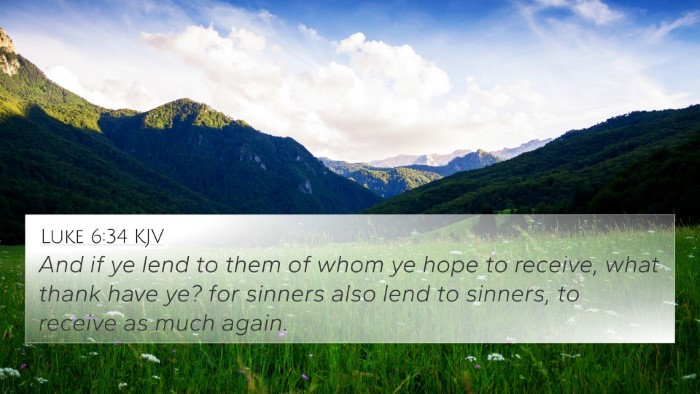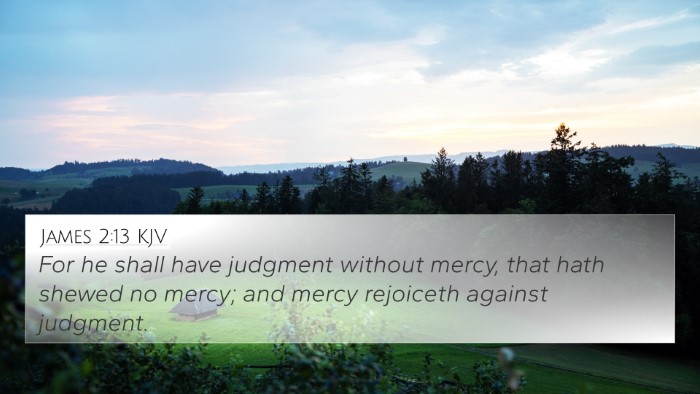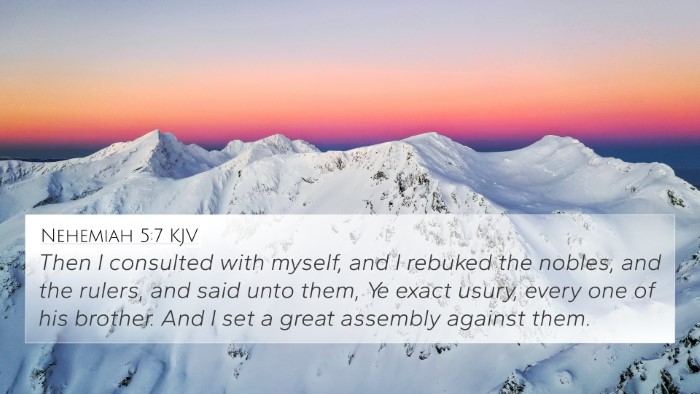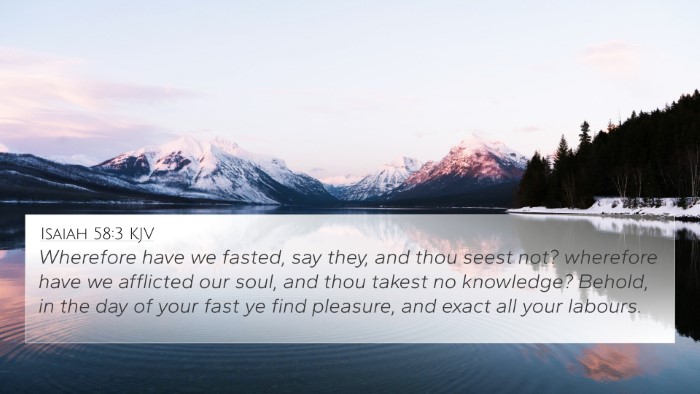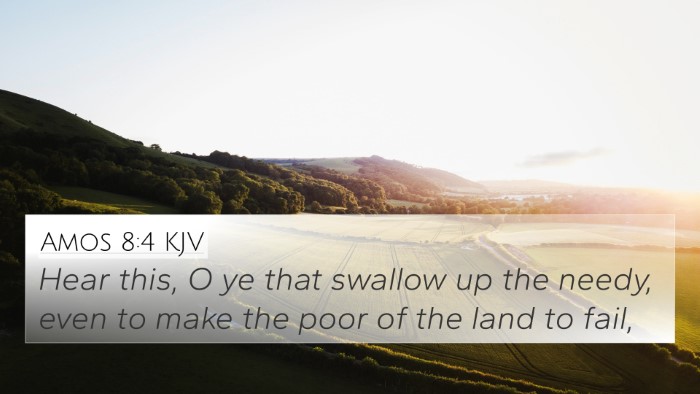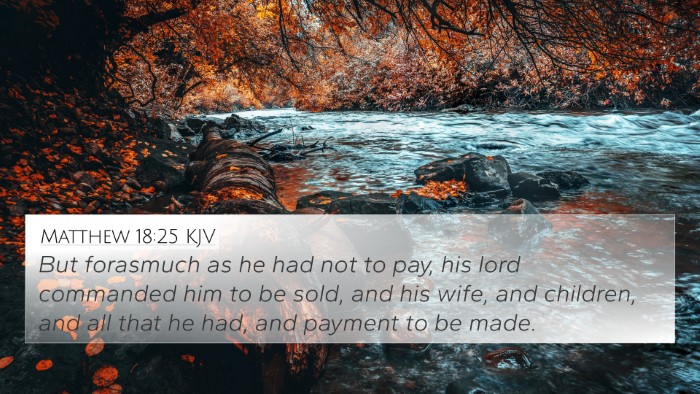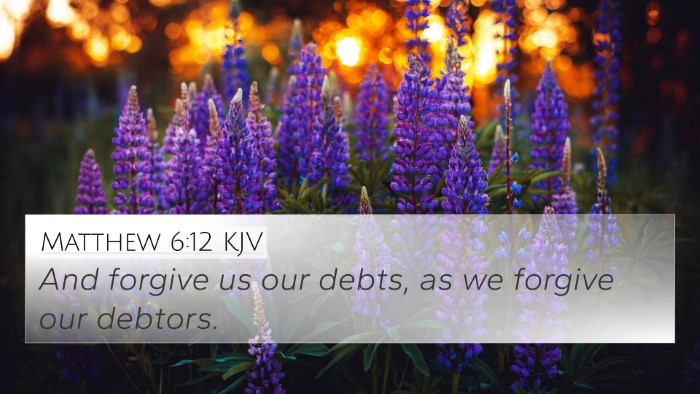Understanding Deuteronomy 15:2
Verse Text: "And this is the manner of the release: Every creditor that lendeth ought unto his neighbor shall release it; he shall not exact it of his neighbor, or of his brother; because it is called the Lord's release." (Deuteronomy 15:2, KJV)
Meaning and Interpretation
The verse addresses the principle of release from debt as part of the social and economic laws given to the Israelites. Public domain commentaries provide a rich background to understand the implications of this law. It highlights God's concern for justice, mercy, and community welfare.
- Matthew Henry's Commentary: Henry emphasizes that this law was intended to cultivate a spirit of generosity and freedom among the people. The "release" referred to here is a divine mandate aimed at preventing perpetual bondage and fostering a community of mutual support. He notes that while creditors had rights, they were bound by covenantial obligations to release their fellow Israelites from debt every seven years.
- Albert Barnes’ Notes: Barnes points out that this statute was part of the broader legal framework intended to ensure that no Israelite remained in a state of destitution. He draws attention to the spiritual underpinning of the command: it reminds the people that their possessions were ultimately God's, and thus they must show mercy as God has shown mercy to them.
- Adam Clarke's Commentary: Clarke provides a deeper historical context, noting that this practice was distinct among the nations of that time. He indicates that the release indicates a profound societal norm where mercy and fairness take precedence over greed, furthering God's intent to create a compassionate society.
Thematic Connections and Cross-References
This verse can be linked to several other passages, providing a wider perspective on its meaning and relevance:
- Exodus 22:25: "If you lend money to any of my people who are in need, do not be like a moneylender; charge no interest." - This echoes the sentiment of creating a debt-free and supportive community.
- Leviticus 25:10: "And you shall consecrate the fiftieth year, and proclaim liberty throughout all the land to all its inhabitants." - Here, the principle of Jubilee reinforces the idea of liberation from debts.
- Nehemiah 5:10: "I and my brothers and my men are also lending the people money and grain. But let the exacting of usury stop!" - Nehemiah's plea highlights the call for fairness in financial dealings.
- Luke 4:18-19: "He has sent me to proclaim freedom for the prisoners… and to set the oppressed free." - Jesus’ mission alludes to concepts found in Deuteronomy, linking the Old Testament practices of liberality to the New Testament teachings.
- Matthew 6:12: "And forgive us our debts, as we also have forgiven our debtors." - This reinforces the importance of forgiveness in the Christian faith and reflects the spirit behind the release laws.
- James 2:13: "For judgment without mercy to the one who has shown no mercy." - The call for mercy is consistent through the scriptures, highlighting God’s justice and kindness.
- Romans 13:8: "Owe no one anything, except to love each other…" - This New Testament passage encapsulates the spirit of compliance with the Deuteronomic law concerning debts.
The Practical Application
The teachings in Deuteronomy 15:2 affirm that the laws governing debts are not merely transactional but also deeply theological. The act of releasing debts not only signifies a financial reset but also an invitation to practice mercy and to mirror God’s grace in communal living.
Spam-perceived Relevance
Understanding the cross-references offered in scripture enhances our grasp of Deuteronomy 15:2. These connections aid in comparative Bible verse analysis, revealing the continuity and consistency of God's message throughout different books, contributing to a more comprehensive study.
For Further Study
Utilizing tools for Bible cross-referencing like a Bible concordance, or a cross-reference Bible study guide can further enrich one’s understanding. Cross-referencing enables the exploration of themes and principles in-depth, facilitating a better grasp of the interconnectedness of scriptures.
Conclusion
Deuteronomy 15:2 serves as an important illustration of God’s desire for His people to live in community characterized by mercy, support, and generosity. The continued relevance of this verse, alongside its connections to other scriptures, encourages believers to practice these principles in their lives today.
